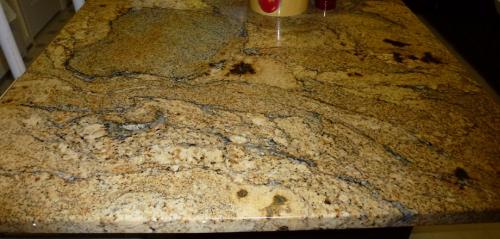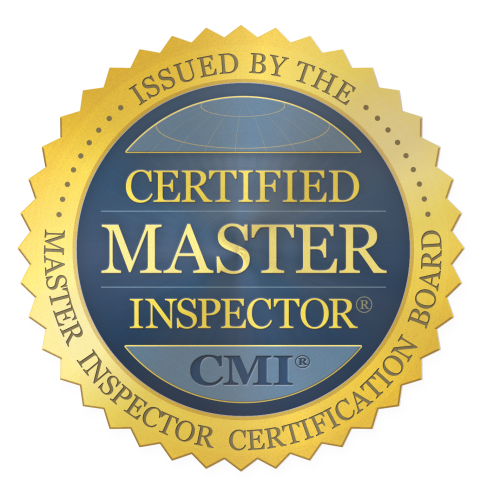Jay Markanich's Blog
Urban Legends Do Get Around - How About Radon In Granite Counter Tops?
Urban legends do get around - how about radon in granite counter tops?
They are out there - lurking - the urban legends, and they are rife!
Just yesterday the Realtor asked me if I am finding a lot of radon in granite counter tops. I said that no, that's an urban legend and it doesn't seem to want to go away.
He said, and this is pretty close to a quote, "Well, you're wrong! I have heard story after story about granite counter tops having radon! I would never have granite in my house!"
Alrighty then!
It would be nice to be able to say that urban legends come and go.
But they only seem to come, and continue to come.
You know, how the moon landings were filmed in a big NASA warehouse, and living near high-tension power lines causes illness and birth defects.
Both those are examples of recycling!
 As to radon in granite counter tops, this was published by WebMD in 2008, “The [granite] counter top story emerges every 10 years or so,” Columbia University Center for Radiological Research Director David J. Brenner, PhD, tells WebMD. “This is about the third time I remember it coming around.”
As to radon in granite counter tops, this was published by WebMD in 2008, “The [granite] counter top story emerges every 10 years or so,” Columbia University Center for Radiological Research Director David J. Brenner, PhD, tells WebMD. “This is about the third time I remember it coming around.”
And I was reminded of it again just yesterday.
So, what of it? Is there radon in granite counter tops? Probably. But, is it dangerous? And, can it be measured?
This has been on the EPA website for years, "Any type of rock could contain naturally occurring radioactive elements like radium, uranium and thorium. Some pieces of granite contain more of these elements than others, depending on the composition of the molten rock from which they formed.
However, since granite is generally not very porous, less radon is likely to escape from it than from a more porous stone such as sandstone. It’s important to know that radon originating in the soil beneath homes is a more common problem and a far larger public health risk than radon from granite building materials. Also, any radon from granite countertops in kitchens or bathrooms is extremely likely to be diluted in the typical home since those rooms are usually well ventilated.
In addition to radon, the other natural radioactive material in the granite can emit radiation. However, it is extremely unlikely that granite counter tops in homes could increase the radiation dose above that the normal, natural background dose that comes from soil and rocks."
Note their use of the word "extremely..."
"But," you might hear, "I've seen news shows on TV showing radon that's detected in granite counter tops!"
Aren't these the same kinds of "news" shows that blew up a car to "prove" that the gas tank was dangerous, and slipped employees under cover into a grocery store to film them dipping meat in chlorine to "prove" that the chain was selling tainted meat?
From a national radon website are the following facts:
- "All natural products, especially stone, minerals, and sand, contain trace amounts of some radioactive elements called NORMs (Naturally Occurring Radioactive Mineral) that can produce measurable amounts of radiation and sometimes radon gas."
- "This includes all concrete products, clay bricks, most non-plastic plates and dishes, coal and the fly ash produced in coal-fired power plants, natural gas (contains radon), phosphate fertilizers used in your garden (ALL contain potassium and small amounts of uranium and thorium), and the vegetables grown using those fertilizers."
- "However, the key word is 'measurable'. As an illustration, compare the radon produced by your naturally-occurring stone surfaces, such as granite, to the heat produced by a birthday candle. The candle cannot heat your house."
- "Recently, many radon labs reported that consumers are placing their radon-in-air test devices on granite surfaces under bowls, buckets, baking pans, or other similar containers. BEWARE of suggestions to place an ordinary radon test kit under an inverted container of an unknown volume. Such an experiment will, 99% of the time, grossly over-report the radon levels."
- "Testing has shown that a "pancake" detector equipped Geiger Counter (like those used on TV for dramatic effect) will over-respond 10 to 20 times more than a professional grade radiation detector like those used in hospitals and nuclear power plants. In fact, up to 95% of the Geiger Counter clicks may come from Potassium in the granite. Potassium does not produce radon gas."
- "Granite also contains an element called Thorium. This can show up in testing and thought to be radon. Thorium produces a different type of gas called Thoron. Thorium is a shorter-lived element, which is similar to radon but decays about 6,500 times faster than radon. Thoron has a half-life of about 51 seconds, whereas Radon has a half-life of just over 92 hours. Because most of the Thoron never makes it very far from the granite's surface, the US EPA does not consider Thoron a major contributor to health problems."
- "The bottom line. Gamma measurements made with simple hand-held meters alone CANNOT tell you how much radon is being produced by your natural stone materials. These simple meters grossly over-respond to the actual radiation coming from the stone surface."
So, is this enough information to sway you one way or the other? Is the granite/radon urban legend still alive and well? I bet it is! Personally I am not worried. The photo above is part of the island in my kitchen! We have a microwave too!
